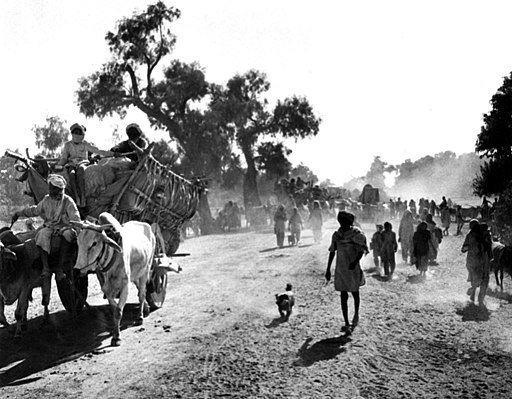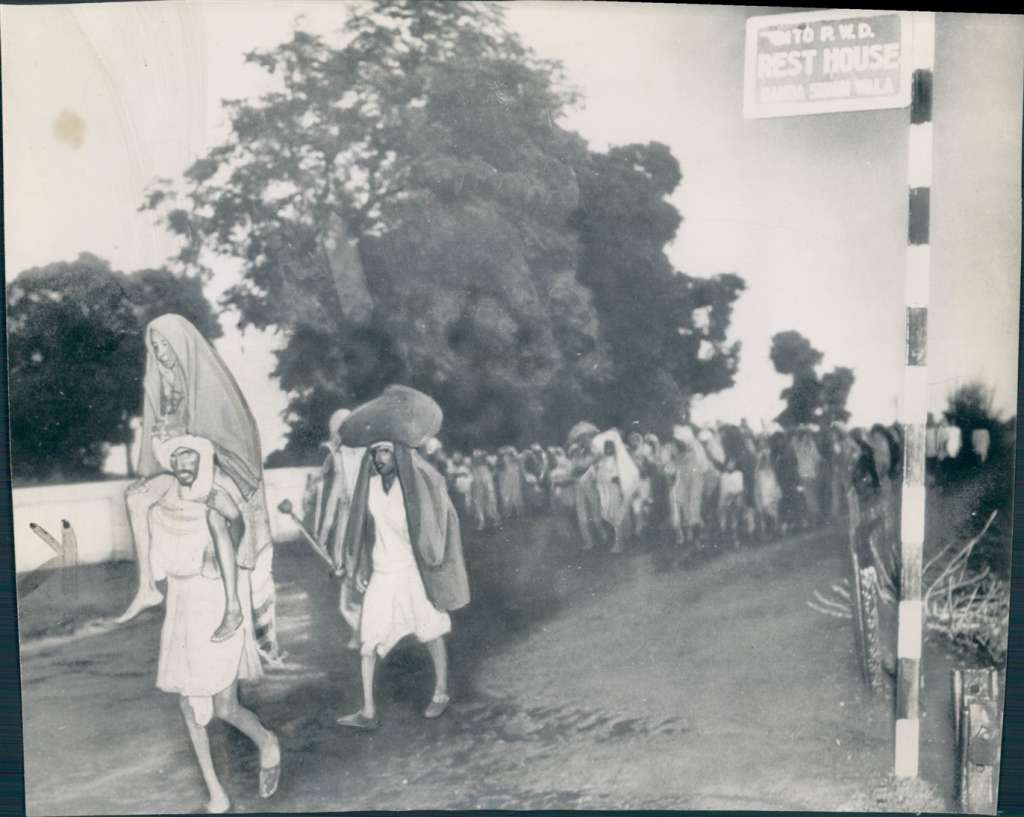Refugee Camp at Ballokiduring Partition of India Mohammad or Mohammed Ali Jinnah (b. 25 Dec 1876 — d. 11 Sep 1948) served as a leader of the India Muslim League (1913 to 1947) one of his speeches shows how centric he was about his goals. He was one of the most influential and powerful leaders (after Gandhi) before the partition of India. He had a significant impact on the creation of Pakistan. Mohammed Ali Jinnah said, “Hundreds of Muslims cannot be characterized as a minority. We are seventeen million in the north-eastern, and we constitute the majority of seventeen percent.…...
Sign in with Google to continue reading
💬 Meet Our Members

Sindhu Gopalkrishnan
I love writing as I get to create something beautiful and touch…

Antonius Bakker
Antonius "Ton" Bakker, born May 23, 1961, in the Netherlands, is a…

Dr. B.H.S Thimmappa
B.H.S. Thimmappa is a seasoned chemistry professional with extensive experience in developing…

Carl Scharwath
Carl Scharwath, has appeared globally with 210+ publications selecting his writing or…

Julia Orozco
Poet who love nature and writing poetry.
Tamizh Ponni VP
Tamizh Ponni VP is an ambivert who loves to express her skills…
Support independent journalism. Your membership keeps us going.

during Partition of India
Mohammad or Mohammed Ali Jinnah (b. 25 Dec 1876 — d. 11 Sep 1948) served as a leader of the India Muslim League (1913 to 1947) one of his speeches shows how centric he was about his goals. He was one of the most influential and powerful leaders (after Gandhi) before the partition of India. He had a significant impact on the creation of Pakistan.
Mohammed Ali Jinnah said,
“Hundreds of Muslims cannot be characterized as a minority. We are seventeen million in the north-eastern, and we constitute the majority of seventeen percent. We want the division of India into India and Pakistan because that is the only practical solution that will secure the freedom of the Hindu and Muslim. These two nations are entirely different. Let me tell you the difference, We different are in History, Culture, Language, Architecture, Music, Claws, Calendar and our entire Social Code of Life.”

Inspiring speech of Mohammed Ali Jinnah
In such an inspiring speech, he said that Hindu and Muslim people would-be neighbors and friends, but it didn't happen at all. Mr. Jinnah's hardworking attitude has ensured him a successful future as a leader by keeping his ambitions high. The transfer of Muslim or Hindu populations from one division to another was one of the greatest calamities of the 20th century.
The black day in the history of partition of India into Pakistan by Jinnah
The Promises, Money, Neighbors, and Lands were worthless. Millions died, raped, and cut into pieces. The actual lovers of India (middle-class) didn't want the partition, and those hated the division of India had started forming their refugee camps. The painful partition took almost a complete five years to get back to normal life. Mr Jinnah was Indian, and he had founded a new democratic world called Pakistan, but later regretted the partition. The book Indian Summer: "Jinnah called the demand for Pakistan was the biggest blunder of his life."

The innocents had no idea that their lives had been blown away by the power of both parties' political intrigue speeches and the ultimate loss of the common people.
Those middle-class people who had nothing to do with either politics or religion For those who lived at the time of the partition, the stories bring waves of fear.

The rotten and decayed bodies of young pregnant women or sometimes kids or elders had been found in the gutters or canals for many months after the riots. After the two years of division of India, Mr Muhammad Ali Jinnah died. It was the most peak time of his life doing something for Pakistan what he had promised.
When reports of the partition appear in the records, only Louise Mountbatten, Mahatma Gandhi, Muhammad Ali Jinnah, and Pandit Jawaharlal Nehru are held accountable for everything that occurred during their rule. In actuality, Mahatma Gandhi had no desire for partition. In the last days of British rule, there was a conversation between Jinnah and Gandhi. “You have mesmerized the Muslims,” Gandhi said. “You have hypnotized the Hindus,” Mr. Jinnah replied.
Read: The team should have implicit confidence in the captain’s decisions (Mr Mountbatten, A man who was born grandson to the great Queen Victoria, the royal man’s links with many royal families and politicians.)











